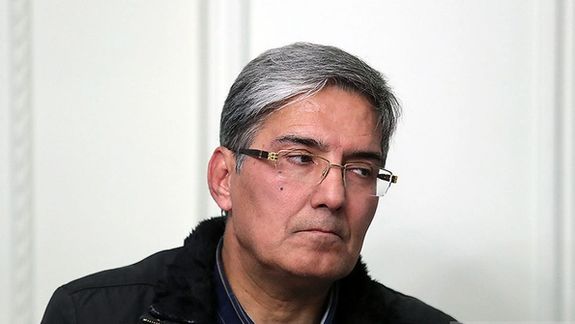Tehran Stock Exchange Ailing Again After Investors Flee In Droves

Tehran Stock Exchange (TSE) has witnessed another massive exodus of capital recently with its main index dropping below the critical two million mark earlier this week.

Tehran Stock Exchange (TSE) has witnessed another massive exodus of capital recently with its main index dropping below the critical two million mark earlier this week.
Closing at 1.95m points on Monday after weeks of turbulence, the main index dropped to the levels seen in mid-March. By Wednesday it rose again to slightly over 2 million points.
But this appears to have done little to reassure neither small investors who have withdrawn much of their capital from TSE in recent weeks for the fear of losing all, nor big investment firms.
“The continuation of negative tremors has a key message [for investors]. It is a signal that speeded up the exodus of big investors and resulted in distrust in the market,” Donya-ye Eghtesad newspaper, which focuses on business and economy, wrote Tuesday.
Experts say there are several reasons for TSE’s troubles these days but the decision of the government earlier this week to increase the price of gas it sells to industries which particularly affects the hard currency earning petrochemical industries was the major reason for the capital outflow from TSE.
The few industries with export markets such as steel and petrochemical represent most of the trading in the exchange.
According to Donya-ye Eghtesad, however, in the past few days shares of most companies have dropped irrespective of whether their value is gauged in hard currency, like exporters, or in the national currency rial, such as construction firms and automakers.
“The massive collapse of the stock market is intentional and the managed work of the government,” Dr Mahsima Pooyafard, US-based university professor, said in a tweet Tuesday, arguing that the government of President Ebrahim Raisi has announced several economic decisions such as increasing certain tariffs that highly affect the profitability of the stock market and drive people to dump their stocks. The collapse of the stock market, she said, would help the government to resolve some of its own cash problems.
The index has been in decline due to political uncertainties since May 7, a day dubbed as “the Black Monday of TSE”, with a handful of small peaks when hopes for reviving Iran’s 2015 nuclear deal helped the index rise momentarily.
Since the United States imposed economic sanction on Iran in 2018, the stock market has risen 24-fold. Half of this astonishing rise is because the Iranian currency has fallen 12-fold in the same period and the market has experienced share price inflation.
This phenomenon, the 12-fold rise of the index in real terms, contradicts other economic indices and prices.

Economic journalist Ehsan Soltani in Tehran has pointed out that based on official statistics, since the first quarter of the Iranian calendar year starting on March 21, 2017, Iran's GDP, consumption by families, and the minimum wage have increased by 750, 550, and 470 percent (in rials), respectively.
“But the value of TSE companies has grown by 2,450 percent and the dollar exchange rate by 1,270 percent,” he wrote and argued that the massive increase in the value of TSE companies is not normal and has only been achievable through government manipulation.
Capital market analysts predict funds withdrawn from the TSE by small investors flow to the parallel gold, property, and foreign exchange markets. This will push the exchange rates up and let the government sell its own petrodollars at a higher rate.
The government decision to sell its own assets through the TSE in early 2020, when the index stood at less than 500,000 points, is often cited as an example of manipulation of the stock market.
Small investors were encouraged by the government of President Hassan Rouhani to commit capital to the market amid the decline in the value of the rial. The index rose to 2 million points by mid-year but soon tumbled down to 1.2 million, wiping out the savings of small investors.
At the time, the Rouhani’s hardliner critics alleged that the government had intentionally drawn people to invest in the stock market, mostly representing public and quasi-public companies, to remedy its huge budget deficit.